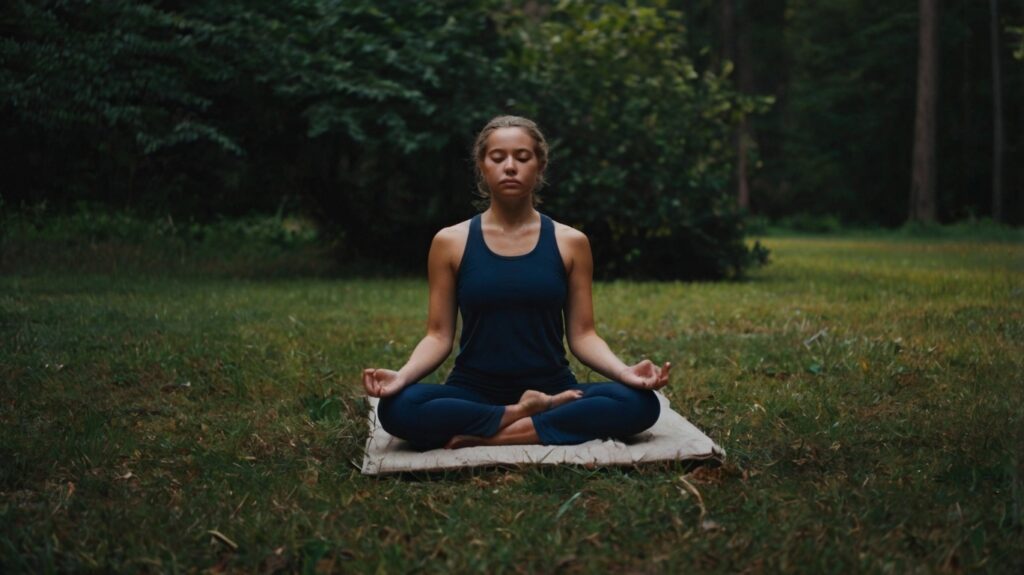Life has a funny way of overwhelming us, but just for today, we can choose to pause, breathe, and let go. Between juggling responsibilities, facing the unknown, and constantly thinking ahead, it’s easy to forget the one moment that truly matters: now. That’s where the magic of “Just for Today” daily meditation comes in—a practice that brings us back to the present and reminds us that peace is always just one breath away.
The Power of Living “Just for Today”
“Just for today” isn’t just a phrase. It’s a mindset. A polite reminder that we don’t need to solve every problem at once. When paired with meditation, this mindset becomes a superpower. Instead of racing through life, we learn to pause, breathe, and live moment by moment.
Understanding the “Just for Today” Philosophy
Origins of the Phrase
The concept has roots in 12-step recovery programs, spiritual traditions, and even ancient Stoicism. It emphasizes taking things one day at a time—a tool for reducing overwhelm and boosting resilience.
Its Use in Recovery and Spiritual Circles
From Alcoholics Anonymous to Buddhist teachings, the phrase “Just for Today” is used to ground people. It’s about making manageable commitments, staying focused, and choosing calm over chaos.
Adapting the Mindset for Everyday Life
You don’t need to be in recovery or follow a specific religion to use this mindset. Anyone can benefit from setting a daily intention to be present, kind, mindful, and at peace—just for today.
What is Daily Meditation?
Daily meditation is a short, intentional pause you take every day to focus inward. Whether it’s 5 minutes or 30, it’s a time to reconnect with your breath, thoughts, and body. It trains your mind to slow down, observe, and let go.

Difference Between Occasional and Daily Practice
Occasional meditation can feel like a band-aid. Daily meditation, though? That’s long-term self-care. It changes the way your brain is wired to be calm, focused, and compassionate.
Advantages of Practicing “Just for Today” Meditation Every Day
Reducing Anxiety and Overthinking
When you commit to “just today,” you remove pressure from the future. Meditation calms the nervous system and brings your mind back from the land of “what-ifs.”
Improving Emotional Regulation
Instead of reacting impulsively, you start responding wisely. Meditation teaches you to notice emotions without being swept away by them.
Boosting Mindfulness and Gratitude
You begin to notice small joys: the sun on your face, the smell of coffee, your child’s laughter. Gratitude naturally grows in the soil of mindfulness.
Enhancing Sleep and Physical Health
Science shows daily meditation lowers cortisol levels (that nasty stress hormone), helps you fall asleep faster, and may even reduce chronic pain and inflammation.
How to Meditate “Just for Today”
Setting an Intention Each Morning
Start each day with a quiet moment and say something simple like:
“Just for today, I will be calm. I will let go. I will be kind to myself.”
Simple Guided Practice
To begin, sit comfortably and allow your body to relax. Next, close your eyes and inhale slowly for four counts. Then, hold your breath for another four counts, and gently release it over four counts. If your thoughts wander, simply return to your breathing without judgment.
Grounding Techniques
- Breath: Count your inhales and exhales.
- Body: Notice the weight of your body on the chair.
- Sound: Tune into the ambient noise without judgment.
Creating a Safe and Peaceful Space
It could be a corner in your room, a park bench, or your car seat before work. No matter where, choose a spot that feels peaceful and yours.

Real-Life Application
Using Meditation to Cope With Stress
When work gets hectic or relationships tense, take a breath. Return to your anchor thought: Just for today, I choose peace.
Reframing Negative Thoughts
Catch yourself in negative self-talk? Pause. Breathe. Replace it with a gentle affirmation: Just for today, I am enough.
Practicing Non-Judgmental Awareness
You can learn to observe thoughts without assigning a positive or negative label by practicing meditation. This creates space for healing, forgiveness, and tolerance.
Tools and Resources
Free Apps and Websites
- Insight Timer—thousands of free guided meditations
- Smiling Mind—perfect for beginners
- YouTube Channels—search “Just for Today meditation.”
Recommended Books and Quotes
- “Wherever You Go, There You Are” by Jon Kabat-Zinn
- “The Miracle of Mindfulness” by Thich Nhat Hanh
“Just for today, I will not worry. I will be thankful just for today. The Reiki Principle
Affirmations for “Just for Today”
- Just for today, I release what I can’t control.
- Just for today, I find joy in small moments.
- Just for today, I am present and grounded.
Common Struggles and Encouragement
Skipping Days Without Guilt
We’re human. Life is messy. Missed a day? No shame. Just come back. The beauty of “just for today” is that each day is a fresh start.
Feeling Restless or Unfocused
Meditation isn’t about perfection—it’s about presence. Even a distracted session is still a session. Keep going.
Staying Motivated with Your “Why”
Write down why you’re doing this. Is it peace? Balance? Clarity? Revisit it often to fuel your consistency.
Conclusion
Just for today, this isn’t simply a meditation—it’s a mindful way to live. In fact, it means choosing peace instead of panic, presence rather than pressure, and mindfulness over madness. At this very moment, you don’t have to change everything. Instead, just breathe. Then, just sit. Finally, just be.

FAQs
1. For what length of time should I meditate “just for today”?
Start with 5–10 minutes. Increase as you feel more comfortable.
2. Can I do this meditation in bed?
Yes, though sitting upright helps keep you alert and aware.
3. What if I miss a day?
No worries. Just start over the following day, guilt-free and new.
4. Is “just for today” linked to religion?
Nope. It’s a universal mindset that anyone—of any belief—can practice.
5. How soon will I see results?
Some feel calmer after one session. But deeper benefits come with regular practice over weeks.










